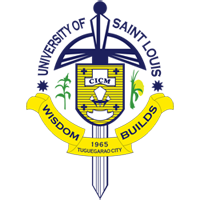
At least eighty-five (85) participants partook in the Community Engagement Summit with the theme: “Engaged Stakeholders, Empowered Communities,” held on Jan. 31, 2019 at the Bulwagang Teodolfo Domingo.
The summit aimed at providing new insights and ways of organizing and building communities.
Rev. Fr. Renillo H. Sta. Ana, CICM, University of Saint Louis (USL) president, commenced his speech by discussing the four dimensions of CICM Seminary Formation.
“One is never done to the neglect of the three other dimensions; apostolic life, perhaps, less in time usually weekends but equally important. Apostolic is when you go out to the confines of the seminary to reach out to the people through pastoral and social activities.”
Fr. Sta. Ana reiterated in his message that every member of the University must help in the promotion of integral formation of the community through extending acts of charity.
“Let us also look at the other things that are going on concerning the children—not only children but also the little ones. When I say the little ones, they are the poor, the abandoned, and the neglected,” Fr. Sta. Ana told the participants.
After which, Mr. Nestor M. Cabrido, head of the then Center for Social Action (CSA) now Community Engagement and CICM Advocacies Office (CECAO), presented the status of the USL Community Engagement Program.
 The CECAO head introduced brief information about the programs and functions of his office. He then gave a five-year report on the status of the student and faculty involvement in the different outreach and extension activities that the University had conducted in the past school years.
The CECAO head introduced brief information about the programs and functions of his office. He then gave a five-year report on the status of the student and faculty involvement in the different outreach and extension activities that the University had conducted in the past school years.
Meanwhile, Dr. Emmanuel James P. Pattaguan, vice president for Academics, talked on the topics “Community Building” and “The Concepts of Extension, Learning and Outreach.”
He differentiated the concepts of extension, outreach and service learning programs (SLPs), emphasizing the inclusion of SLP in course syllabi.
After the VP for Academics’ talk, a workshop on issues and concerns affecting the implementation of the Community Engagement Program followed, with Mr. Cabrido and Mr. Herbert S. Corpuz, dean of Student Affairs, as the facilitators.
Seven groups were formed, namely: Elementary; Junior High School; Senior High School; School of Engineering, Architecture, Interior Design, and Information Technology Education (SEAIDITE); School of Accountancy, Business and Hospitality (SABH); School of Education, Arts, Sciences, and Health (SEASH); and presidents of college organizations and Supreme Student Council (SSC) officers.
Each group of the basic and higher education had with them their academic extension coordinators, faculty representatives, and several pupil/student and departmental officers.
The groups identified some issues and concerns along organizational structure, leadership, finance, and prospective partner communities towards the implementation of the community engagement program.
In the afternoon, another workshop titled, “Stakeholder’s Response to the Issues and Concerns” was conducted.
Presentation of outputs took place after each workshop.

